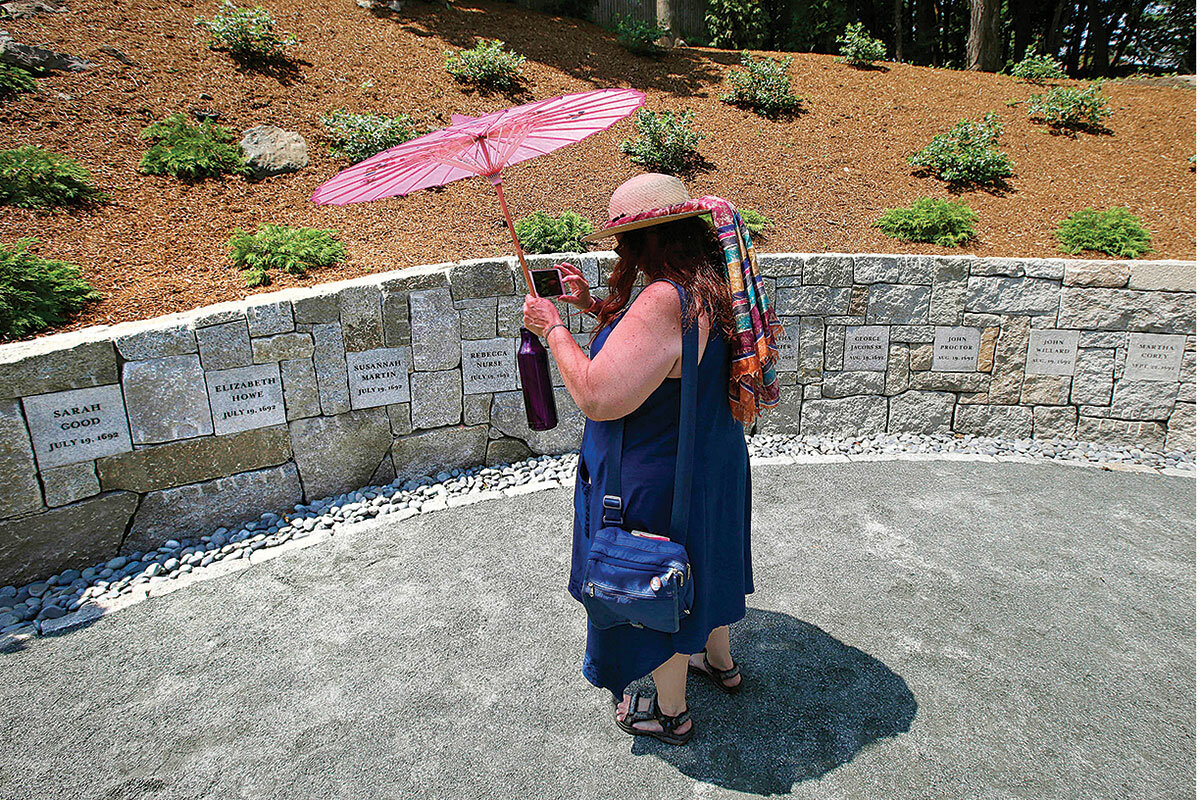Dignity in a home address, and the right to a healthy environment
Loading...
Sometimes people encourage home and a healthy environment not only for others but also for animals, as seen in the comeback of locally extinct land iguanas to a part of the Galápagos Islands.
1. Ecuador
Land iguanas are once again breeding on Santiago Island after 187 years of local extinction. When Charles Darwin explored the Galápagos Islands off the coast of Ecuador in 1835, he recorded an abundance of land iguanas. By the early 1900s, these lizards had vanished from Santiago Island, likely due to the interference of introduced species such as feral pigs, goats, and donkeys.
Why We Wrote This
A story focused onOur progress roundup highlights disadvantages that some people live with every day and how to minimize them – including what it means for residents of informal settlements in India to receive their first-ever home address.
Authorities at the Galápagos National Park reintroduced land iguanas to Santiago in 2019 after removing the large invasive animals from the island. They’ve since released 3,000 of the lizards, known as an engineer species that helps maintain a balanced ecosystem, into the wild. Last month, park rangers discovered a new crop of land iguanas of varying ages, evidence that the experiment worked. Scientists say the project offers an encouraging model of addressing ecosystem imbalance at its source.
Source: NPR
2. United States
The last unpardoned victim of the Salem witch trials has been exonerated. Elizabeth Johnson Jr. was one of over 200 women from around Salem, Massachusetts, accused by Puritans of witchcraft between 1692 and 1693. The General Court declared the trials unlawful by 1702, and in 1711, the rights and “good names” of most of the women were restored. But without descendants to press the cause, Ms. Johnson was the only one whose name was not officially cleared.
Carrie LaPierre, a local eighth grade civics teacher, rallied for three years with students to put the final nail in the coffin of the trials, which historians say were rooted in collective religious paranoia. The project helped her students learn about research methods, state legislation, how to contact a lawmaker – and the importance of acceptance. “It’s something we talk a lot about: identity and stereotypes and respecting people who are different than you,” said Ms. LaPierre.
State Sen. Diana DiZoglio added the amendment pardoning Ms. Johnson to the state budget, signed last month. “These students have set an incredible example of the power of advocacy and speaking up for others who don’t have a voice,” she said.
Source: The New York Times
3. India
Residents of informal housing in India are getting home addresses for the first time. Without a street address, it can be hard for the country’s slum households – more than one-third of the population – to do things like sign up for a bank account or the internet, register to vote, or order items online.
An open-source system called Plus Codes is offering a partial solution. Developed by Google, the tool takes the latitude and longitude of a location and then creates a unique code that functions as a street address. “Now we don’t have to give detailed instructions to relatives when they visit us,” said Sana Shakil Sheikh, resident of an informal neighborhood in New Delhi. The system doesn’t fix problems like poverty, poor sanitation, or limited access to water and electricity, but can make it easier to tackle those issues.
Several Indian nonprofits had done something similar before the launch of Plus Codes. Addressing the Unaddressed, for example, designed a coding system used in Kolkata since 2012. The team adopted Plus Codes in 2018 and expanded its reach from 10,000 houses each year to over 150,000 houses by 2020. In the city of Kolhapur, all 16,000 slum households now use Plus Codes.
Source: Reasons to Be Cheerful
4. Singapore
Multilevel parking lot roofs are being turned into vegetable farms in Singapore. The government of the small city-state began leasing plots to urban farmers in 2020 as part of a plan to produce 30% of the food the country consumes by 2030. Currently, that number is less than 10%.
With government support, at least a dozen parking lot farms are now operating, some producing as much as 400 kilograms (880 pounds) of fresh veggies a day. Given high operating costs, the financial sustainability of these farms remains to be seen. For farmer Nicholas Goh, the social benefits that his urban farm brings to nearby families outweigh economic concerns: “It is a community kind of approach, rather than a commercial approach.”
Source: BBC
World
The United Nations declared access to a clean, healthy, and sustainable environment a universal human right. In doing so, the U.N. aims to address what is being called a triple planetary crisis of climate change, pollution, and biodiversity loss. The text was originally presented by Costa Rica, the Maldives, Morocco, Slovenia, and Switzerland last summer. The U.N. General Assembly voted overwhelmingly to adopt the resolution, with 161 votes in favor and eight abstentions.
The decision follows decades of environmental activism and has roots in the 1972 United Nations Conference on the Environment in Stockholm. U.N. resolutions are not legally binding but nevertheless spur far-reaching change – which had not always been a welcome idea for some member states. “In a world that too often emphasizes the differences between people, the right to a healthy environment reflects a fundamental truth that should unite us all,” said David Boyd, the U.N. special rapporteur on human rights and the environment.
Sources: United Nations, Mongabay









